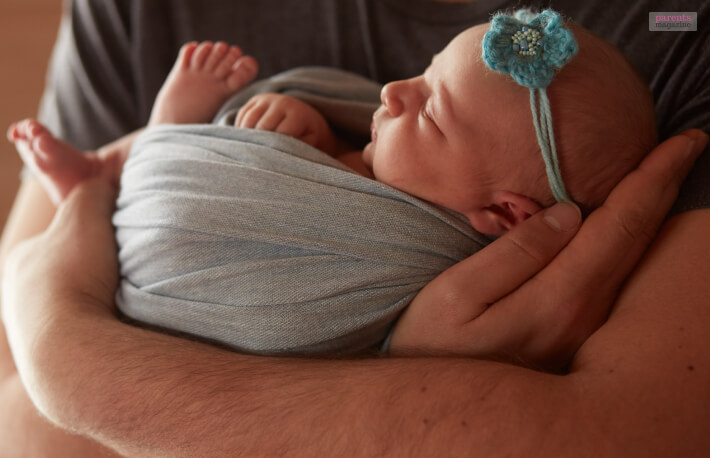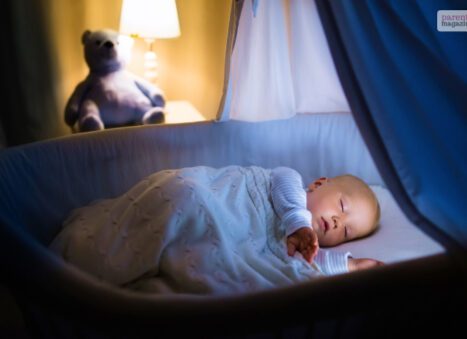
Newborn Won’t Sleep Unless Held: Tips And Tricks For Getting Them To Sleep Without Holding Them
The ultimate reward for a new parent is holding their precious one after a long nine months of pregnancy. Nothing is more joyous than holding that little baby in your arms and watching them go to sleep slowly in your arms as you cradle them. You will enjoy spending some time with the little munchkins while they make those little cooing noises. It is not just them who loves it but you will love this moment as well. But to be honest, this is not always a feasible and practical solution for putting your baby on a nap. Thinking about what to do when your newborn won’t sleep unless held?
Read the whole article, and you will find a solution to your problem. You will get to know why your baby is most comfortable in this position. Read along to learn about the different ways that can help you make the transition from sleeping in your arms to sleeping in your own beds.
Why Do They Only Sleep When They Are Being Held?

We often come across a parent saying, “My baby only sleeps when I hold them in my arms.” well, do not worry; you are not the only one facing this issue. And there are some factors that affect this. From the very first moment you hold the baby in your arms, close to you, they feel at ease. The skin to skin contact is important for them to build a sense of safety and ease. This helps them stay in comfort and fall asleep.
Attachment & Bonding
Biologically, most of the development happens during the fourth trimester to prepare the newborn for adjusting to the outer world outside the womb. According to Christine Brown, the founder of Bella Luna Family, a company that helps parents with child behavior, their sleeping patterns, as well as potty training, says, “So in the early days, it’s a necessity to hold our babies for sleep—at least some of the time—to give them the closeness and security they need.”
But after that, things start to change, and then there are some other reasons why a newborn won’t sleep unless held.
Temperature & Breathing Regulations
Infants aren’t strong enough to maintain their body temperature. They cannot control the temperature of their body and can lose body heat quickly at any point. It’s possible for them to lose heat four times faster than adults.
Sometimes, they lose their heat even in a warm environment. There are a host of benefits for holding a baby close when trying to put them to sleep. When they feel their mother skin-to-skin, they can regulate their body temperature better.
They Learned This From The Womb
A baby spends nine months or more in their mother’s womb and enjoys the cozy time, along with the ambient sounds from the surroundings. If they are craving the comfort you provided for all those months, it is completely normal.
Courtney Zentz, the founder of Tiny Transitions, CLC, says, “As /[newborns] grow and develop, so does their calming reflex. The soothing sensation in the womb, and the imitations of this outside of the womb, trigger this reflex—hence, a baby having a preference for being rocked to sleep.”
If you let your baby only sleep in your arms while you shush them, bounce them, or rock them, which obviously is a normal thing to do for parents, they will not like it when you put them down for a nap. They will not earn the skills if they are not taught to sleep on their own.
This means that the baby could wake up multiple times in between their sleep from the motion. They would be looking for the motion they are used to. You have to stay awake the whole night and take short, broken naps, which could get you exhausted.
They Fall Asleep While Feeding
It is natural that you will tend to your baby when they want to be nursed or bottle-fed. But there could be some other reasons behind it as well. As a new parent, you might not know their wake window, which often changes as the baby grows. Because of that, a baby gets overtired quickly and becomes hungry. They do not even go through the complete feeding session because you are soothing them, and fall asleep. The task of sucking puts them to sleep.
Colic Or Reflux
If your baby is having a hard time getting to sleep, you might feel tempted to hold them until they are falling asleep. But colic or silent reflux could be the culprit behind it. Zentz advises that whenever you feel that it is happening because of reflux and they are not able to sleep independently, hold your baby in the upright position for like 20 minutes. After that, you feed them and then put them in the crib.
This Has Become Their Habit
If there is no health issue, then it has become their habit. Sentz says, “Sleep is a skill—and how a baby learns to fall asleep is how they expect to fall asleep every time. If the baby has spent six months [being] rocked to sleep, and you suddenly want them in the crib, like any new skill, there will be a learning curve.”
Here Are A Few Tips For Making Them Sleep Without Being Held

So, how do you figure out that it is time to stop letting youor baby fall asleep in your arms? According to Brown, “When babies start to intentionally smile at you—around 6 to 8 weeks—this is a sign that it’s time to try to start having baby nap independently.” during this state, babies become more social and awake. This is the tim when they develop the ability to follow cues and form connections.
At this stage, teaching a baby how to sleep independently is important. This is an important skill they need to learn before the feared 4-month sleep regression. Along with that, Zentz adds by the time a baby reaches 12 weeks, they should learn how to settle in their crib independently. You have to drop the dream feeds to let their natural development happen and form their own sleep cycles.
This change does not happen overnight. If the newborn won’t sleep unless held, here are a few tips that you can follow to get them to sleep independently. And, of course, give them some time.
Make It A Gradual Transition
According to Gentz, “Start with one nap a day. Lay baby down in their crib or bassinet while they’re drowsy but still awake. This creates diversification of a skill that you can build on over time.”
Adjust The Order Of Naptime Events
Zentz says to feed the baby first and then put them in the upright position and possibly read to them. And then lay them on their crib.
Offer Gentle Reassurance
Try to offer them some confort, but do not do something overly stimulating so that they can fall asleep. Put your hand on their chest or hold their hand. Ztentz suggests, “Then, each day, gradually wean off the amount of support as their skill set of independent sleep sharpens.”
Give Yourself Grace
The learning curve is a real thing, and so is this sleeping challenge that a baby faces. Do not take it upon yourself, and be harsh with yourself during this time of transition. The baby will take some time, but eventually, they will learn to sleep on their own and not in your arms. Meanwhile, utilize this time and enjoy the extra cuddles. Take things easy when they do not go according to the plans.
It is normal for babies to protest when they see changes. This does not mean that you should let them cry it out or become super strict with them at this age. Try something new when one plan fails. If they cry for five minutes, it is okay. Let them. But after that, things might start to get normal, but remember, do not be too harsh with them as well.
But, is it Ok for the Baby to Sleep on Me?
Yes, it’s completely fine and safe for your baby to sleep on you. They need those early post-birth snuggles from their mama to regulate their breathing and body heat. This not only keeps them physically healthy but also builds a safe of safety and calm.
The best thing about your baby sleeping on you is the sense of attachment and bonding they build over this period. But it’s really important for your baby to sleep safely when he’s sleeping on you.
However, do concern yourself with some risk factors. For example, if your baby is falling asleep on you while you’re also asleep, it might endanger their life. According to the AAP, there’s a 67% chance of sleep-related infant death for babies that fall asleep on someone or a small soft surface.
If you want them to sleep on you, consider staying awake for that time. Also, it’s better to wear a sling wear to attach the baby close to you so that they are safe and you can also utilize the time as they sleep.
YOU MAY ALSO LIKE:
Already have an account?
Sign In
Create your account
User added successfully. Log in








